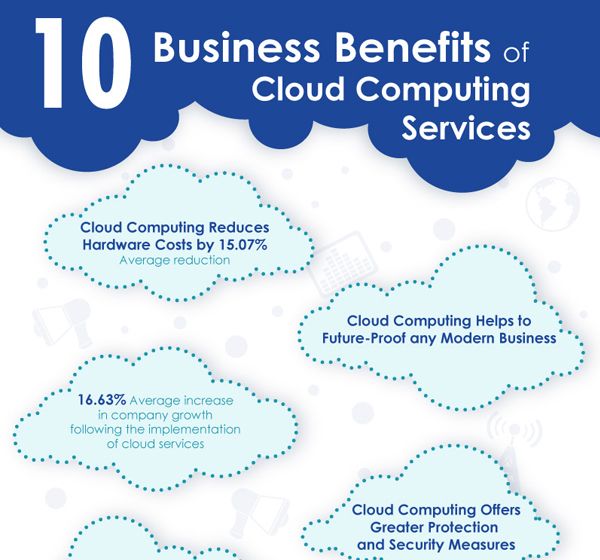In today’s fast-paced digital world, businesses are constantly looking for ways to streamline their operations and increase their productivity. One of the most effective ways to achieve this is through the use of cloud computing. Cloud computing refers to the delivery of computing services – including servers, storage, databases, networking, software, analytics, and intelligence – over the internet (“the cloud”) to offer faster innovation, flexible resources, and economies of scale.
Cost Savings
One of the most significant benefits of cloud computing for modern businesses is cost savings. With cloud computing, businesses no longer need to invest in expensive hardware and software. Instead, they can access the resources they need on a pay-as-you-go basis, which can result in lower upfront costs and reduced IT expenses. Additionally, businesses can scale their resources up or down as needed, further optimizing costs and avoiding overprovisioning.
Flexibility and Scalability
Cloud computing offers businesses unmatched flexibility and scalability. With cloud services, businesses can quickly scale their operations up or down based on demand. This means that businesses can easily adapt to changing needs, without the need for substantial investments in hardware or infrastructure. Whether a business is experiencing rapid growth or a seasonal spike in demand, cloud computing provides the resources needed to support these fluctuations.
Improved Collaboration
Cloud computing enables businesses to improve collaboration among employees, regardless of their location. With cloud-based collaboration tools, employees can easily share and access files, communicate in real-time, and work together on projects seamlessly. This level of collaboration increases productivity and efficiency, as teams can work together more effectively, even if they are spread across different locations.
Enhanced Security
Contrary to popular belief, cloud computing can enhance security for modern businesses. Cloud service providers invest heavily in security measures to protect their customers’ data. This includes advanced encryption, threat detection, and compliance certifications. Additionally, cloud providers often offer data backup and disaster recovery services, ensuring that businesses can recover quickly in the event of a cybersecurity incident or data loss.
Increased Accessibility
Cloud computing provides businesses with increased accessibility to their data and applications. With cloud services, employees can access the information they need from any device with an internet connection, making it easier to work remotely or on-the-go. This level of accessibility improves employee productivity and ensures that businesses can operate seamlessly, regardless of their physical location.
Improved Competitive Advantage
By leveraging cloud computing, modern businesses can gain a competitive advantage in their industries. Cloud services enable businesses to innovate faster, deploy new services more efficiently, and scale their operations more effectively. This agility allows businesses to stay ahead of their competitors and respond quickly to changing market conditions, giving them a distinct edge in today’s fast-paced business environment.
Conclusion
Cloud computing offers a wide range of benefits for modern businesses, including cost savings, flexibility, scalability, improved collaboration, enhanced security, increased accessibility, and a competitive advantage. By utilizing cloud services, businesses can optimize their operations, increase their productivity, and drive innovation, ultimately positioning themselves for success in today’s digital economy.

